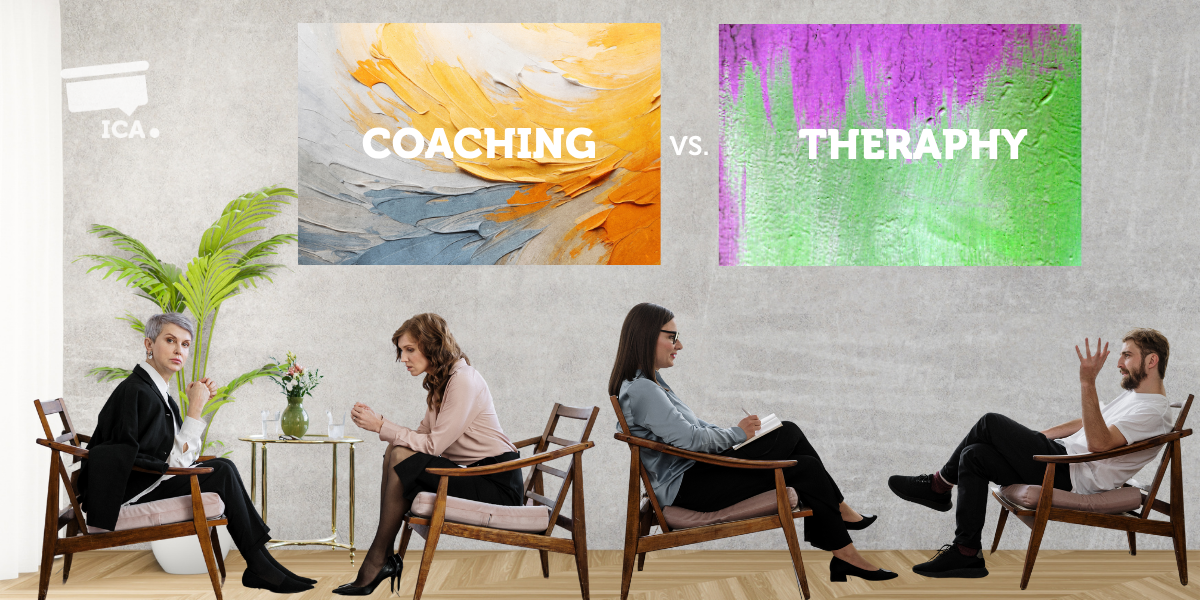Coaching is not therapy. One of the most obvious differences between the two approaches is that therapy tends to focus on feelings and experiences related to past events, whereas coaching is oriented towards goal setting and encourages the client to move forward.

If you’re thinking about becoming a coach—or you’re already on your journey toward ICF accreditation—you’ve probably come across this question: What’s the difference between coaching and therapy?
It’s a good one. On the surface, coaching and therapy can look similar. Both involve deep conversations, personal growth, and helping people make positive changes in their lives. But the purpose, process, and orientation of each are fundamentally different.
Coaching Is Not Therapy
Let’s start with the biggest distinction: coaching is not therapy.
Therapy typically focuses on healing. It often involves exploring the past, processing trauma, and understanding the emotional roots of current challenges. Therapists are trained mental health professionals who work with clients to diagnose and treat psychological conditions.
Coaching, on the other hand, is not about healing the past. It’s about creating the future.
Coaching Is Forward-Focused
In coaching, the starting point is where the client is right now, and the focus is on where they want to go next. Coaching is a future-focused, action-oriented process designed to help people gain clarity, set meaningful goals, and take steps toward achieving them.
A coach doesn’t ask, “Why did this happen?” but instead, “What do you want now?” and “How can we move forward?”
Therapy Explores the ‘Why’
Therapists often work with clients to uncover the root causes of emotional distress or dysfunctional behavior. This might involve revisiting childhood experiences, unpacking trauma, or managing mental health conditions like anxiety or depression.
In contrast, coaching assumes the client is whole, capable, and resourceful. Coaches don’t diagnose or treat—they partner with clients to unlock potential, not fix problems.
Coaching Empowers the Present
An ICF-trained coach works in partnership with the client to generate awareness, identify goals, and design actions. The process is collaborative, and the client is always in the driver’s seat.
Think of it like this:
Why This Distinction Matters
As coaching grows in popularity, it’s more important than ever to understand—and respect—the boundaries between coaching and therapy. As an aspiring ICF-accredited coach, this distinction will help you:
-
Stay in ethical alignment with ICF Core Competencies and the Code of Ethics
-
Set clear expectations with your clients
-
Recognize when a client might be better served by a therapist or mental health professional
-
Focus your practice on forward momentum and goal achievement
Final Thoughts
Both therapy and coaching play essential roles in personal development. They just do different things.
If you’re called to help people create change, grow into their full potential, and take meaningful action, coaching might be your path. And with ICF accreditation, you’ll have the skills, structure, and standards to do it professionally and ethically.



